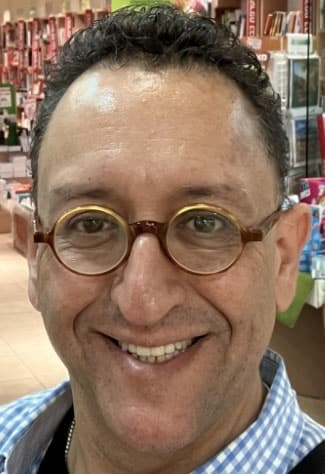It was a very brief meeting, and a seemingly peculiar exchange of words. For the first time, the head of the Israelite household — Jacob — meets Pharaoh, the king of Egypt.
The only thing they shared in common was Joseph.
To Jacob, Joseph was his son, and to Pharaoh, Joseph was the economic wizard who saved his empire’s economy from total disaster.
If one were asked to speculate on what these two men would speak about during their first meeting, it might go something like this:
“Jacob, you raised a brilliant young man. Without him, our country would be in a great depression right now.”
Beaming with pride, Jacob would respond, “Thank you, your majesty, it’s a great honor to see my son serving in your distinguished court. He always was a dreamer, and I am proud that he followed his dreams.”
Pride, honor, and praise — all of the ingredients one would expect in a first conversation between a grateful king and a proud father.
There is no such exchange between the two, nothing even remotely close. Instead, here’s how it went: “Joseph brought his father and presented him to Pharaoh. Jacob blessed Pharaoh. ‘How many are the days of your life?’ asked Pharaoh of Jacob. Jacob replied to Pharaoh: ‘The days of the years of my sojourning are a hundred and thirty years; few and unhappy have the days of my life been. I did not attain the days of the years of life that my fathers did during their sojourn through life.’ With that, Jacob blessed Pharaoh and left his presence.” (Genesis 47:7-10)
Far removed from the typically schmaltzy story of “Your son is so wonderful,” and “Yes, I’m so proud of him,” the brief exchange between Pharaoh and Jacob has an altogether different aura, rooted in what we call in Hebrew hochmat haim, or life’s wisdom.
As the leader of a powerful empire, Pharaoh had certainly met many world leaders. In his meetings with them, he certainly drew from their wisdom and advice, as would any intelligent ruler. One can only imagine what Pharaoh expected Jacob to look like, but the 16th century Polish commentator Kli Yakar tells us that Pharaoh was shocked when he saw a thin, frail, weakened old man approaching him, barely able to walk toward his throne. Jacob begins by blessing Pharaoh, and this seems to bond the two men, so much so that Pharaoh poses a wise, carefully worded, personal question: “How many are the days of your life?” The wording of Pharaoh’s question caught the eye of many commentators, who wonder why Pharaoh did not simply ask, “How old are you?” Why did he word his question as “How many are the days of your life?”
Jacob’s response reflects a deep understanding of Pharaoh’s carefully worded question: “The days of the years of my sojourning are 130, [but] few and unhappy have been the days of my life.”
Rabbi Samson Raphael Hirsch, a 19th-century German commentator, remarks that Jacob differentiates between living and existing: “You ask how many are the days of my life? I have not lived much. I have sojourned on this earth for 130 years. The days of the years that I can really call my life were in reality only few — and were themselves bitter and full of worry.”
The Netziv, head of the Volozhin Yeshiva during the second half of the 19th century, offers an additional insight: “My years of success in life were few and bitter, for even when I had actually achieved material wealth and financial security, my life was still filled with woe and sorrow, such as the death of my wife Rachel and the rape of my daughter Dinah.”
Jacob’s answer is filled with perspective on life’s big question: How do we measure and define a “happy life”? Is it by living to a ripe old age? Is it through material wealth and success?
According to Hirsch, Jacob was telling Pharaoh that a true human being does not see life through length of years, rather through the quality of days lived. As much as we may like to think otherwise, Hirsch says, “It is only with a few select people that each day is full of importance and is considered by them as having a special meaning.” Jacob’s perspective brings to mind the custom of reciting Psalm 90 at a funeral, when — before burying a loved one — we ask God to “Teach us to number our days, so that we may get a heart of wisdom.”
The Netziv’s comments add the powerful reminder to Pharaoh that material wealth alone does not bring happiness. In another psalm recited by mourners (Psalm 49), we are reminded that material wealth is not carried with us into the grave. Jacob told this wealthy king that his great palace, wealth and fame are of no value without the true happiness, love and fulfillment of family life and personal relationships.
In the waning days of a 130-year-old life that included receiving his father’s blessing by way of deceit, a terrible relationship with his brother, an unfulfilled married life, the rape of his daughter and constant strife between his children, Jacob teaches Pharaoh — and all of us — that happiness is not about reaching old age or amassing wealth; rather, it’s about the quality and richness of day-to-day life. In this regard, his brief encounter with Pharaoh is arguably his greatest and wisest moment as a patriarch.
Daniel Bouskila is the rabbi of Sephardic Temple Tifereth Israel in Westwood. You can read his blog at www.rabbidanielbouskila.blogspot.com, and can reach him for questions or comments at rabbousk@aol.com.























 More news and opinions than at a Shabbat dinner, right in your inbox.
More news and opinions than at a Shabbat dinner, right in your inbox.